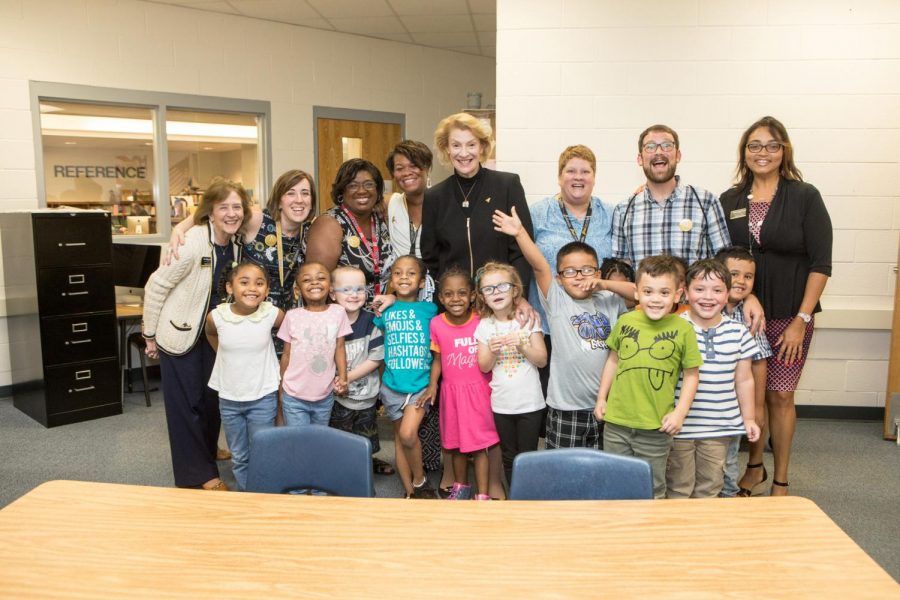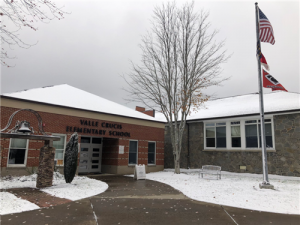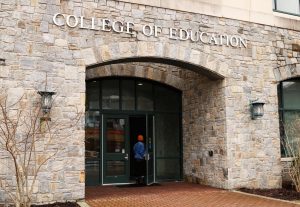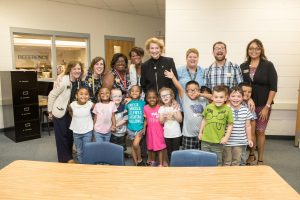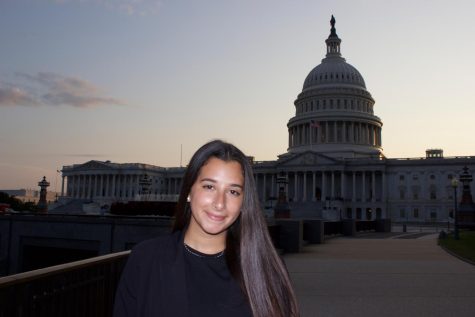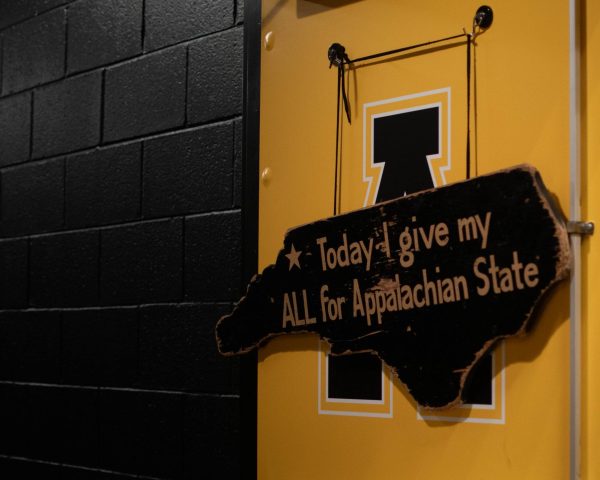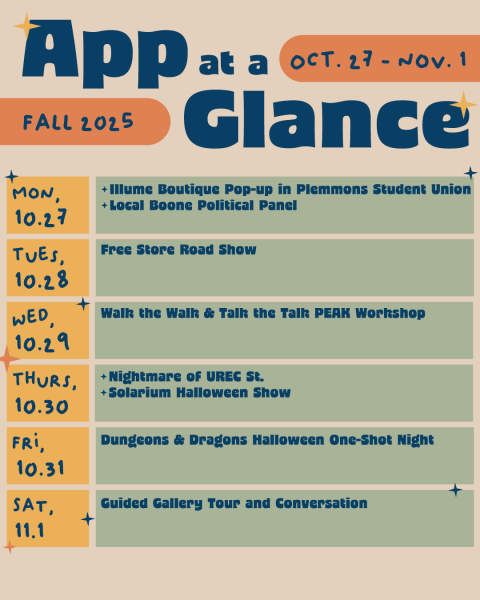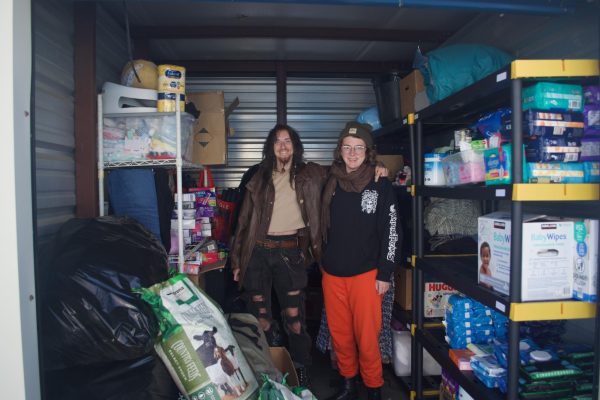Academy at Middle Fork opens classrooms most days, continues connections with university virtually
Courtesy of Academy at Middle Fork
Dean of Reich College of Education Melba Spooner and App State Chancellor Sheri Everts visit Academy at Middle Fork students in 2019. Students get the chance to connect with faculty, staff, and students of many majors at App State.
March 20, 2021
With the option of in-person or virtual learning, most students at App State’s lab school have returned to classrooms four days a week.
The Academy at Middle Fork is a K-5 UNC System lab school, a school partnered with a university for the use of future teachers’ training, operated by App State, with about 275 students.
Tasha Hall-Powell, Middle Fork’s principal, said one of the school’s main goals is to foster literacy support for children who struggle with reading.
“We do things like invite authors in to help provide opportunities for our children to connect with real authentic people,” Hall-Powell said. “We flood them with books with characters that look like them and have experiences that they may have had in their own world.”
Currently, five UNC system schools are a part of the lab school initiative that provides enhanced educational programming to lower performing schools. Each university partners with a local education agency to operate the lab school.
The academy’s staff works directly with App State faculty to collaborate on the partnership. Many of the faculty members come from App State’s Reich College of Education, but it’s not limited.
The academy has four commitments: boosting academics, amplifying sustainability, developing the whole child and learning together.
“We are focused on instruction, making sure that all of our students’ needs are met and making sure our teachers have all the resources they need,” Hall-Powell said.
Hannah Reeder, interim director of the academy, said the academy has increased their use of technology, awareness surrounding how to operate it and communication with families.
“Believe it or not, in a hybrid setting, we’ve had more family engagement then we did in person because we’ve had to communicate with each other about what’s going to work for each individual student,” Hall-Powell said.
In January, the academy brought K-3 grade students back for four days a week. Just last week, the academy opened the school for all students to return for four days a week.
“Being able to gradually increase the number of students while practicing all the safety measures has gone really well,” Reeder said.
Reeder said if students are able to return to school, they come to school. Only a small number of students remained fully online due to health reasons.
“One of my goals was to really do a better job of bringing the university to the lab school,” Reeder said.
Because of COVID-19 regulations, the academy is not allowing visitors; instead, staff members created “behind-the-scenes” videos for families to see how the school is operating.
“It’s time to build community with the whole school and so we do it via Zoom,” Reeder said. “We invited faculty and staff from the university to join us and they loved that. They loved getting to actually see the students and be involved with them.”
Reeder said she realized quickly that the university wants to see more and get involved.
“We created the virtual tour to just share with everyone what school looks like right now, especially during a pandemic,” Reeder said. “We want everyone on campus to feel like it’s their school.”

